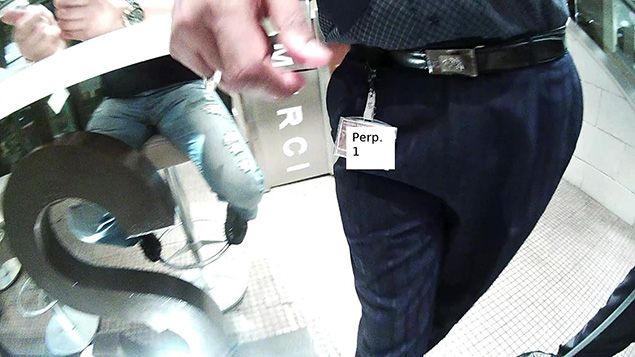Steve Mann, inventor of EyeTap, a "digital eye glass computer vision system" not too dissimilar to Google Glass has allegedly been assaulted in a French branch of McDonald's. And, because of a failsafe mechanism in his "Augmediated Reality" specs, pictures of the men he claims to be perpetrators were stored as evidence.
Mann has been wearing his creations for 34 years and designed them to help those with impaired vision, rather than simply to add an AR skin on to whatever the user sees. He has previously led MIT's Wearable Computers group and has also been called "the father of wearable computing".
His current EyeTap system is permanently attached to his skull and can be removed only with dedicated tools, which is why, when an alleged employee of McDonald's tried to rip them from his face, he was unable to do so.

Mann says he was visiting Paris with his family and had spent a day out at museums and historical landmark sites. He carried a letter from his doctor to explain his need to wear the EyeTap device in case governmental officials and security questioned the system. None did.
It was only when he went to McDonald's in the French capital, he says, that somebody objected to their presence. Although the family was served quite happily, other employees approached Mann and, after allegedly trying to tear the EyeTap from his face, are said to heve ripped up the medical documents he showed them and threw him and his family on to the street.

In the process, the struggle kicked in a failsafe mechanism in the device in which, if the computer is damaged in any way, it backs up the most recent images as buffered pictures remain in the memory for retrieval later. Therefore, the glasses captured the faces and, in one case, the name tag of the McDonald's employees Mann claims assaulted him.
McDonald's has sent a written response to gadget site Slash Gear, stating that the international restaurant chain is looking into the matter. "We strive to provide a welcoming and enjoyable experience for our customers when they visit our restaurants," it says.
"We take the claims and feedback of our customers very seriously. We are in the process of gathering information about this situation and we ask for patience until all of the facts are known."
It leads us to wonder, however, whether Google Glass - a potentially more widespread consumer version of Steve Mann's computer vision device - and specifically the wearers thereof will be welcomed with open arms.

